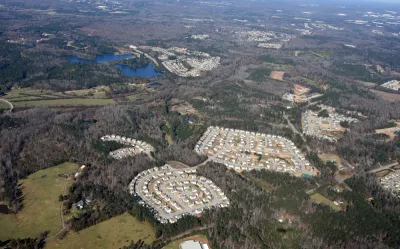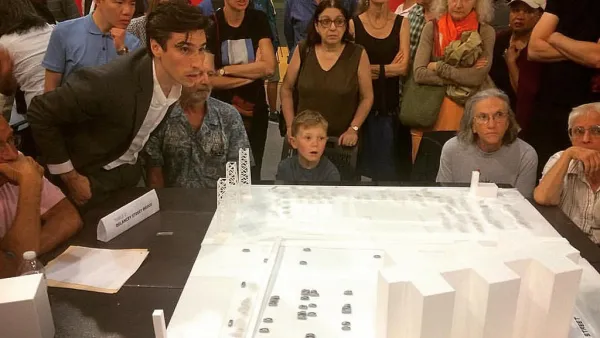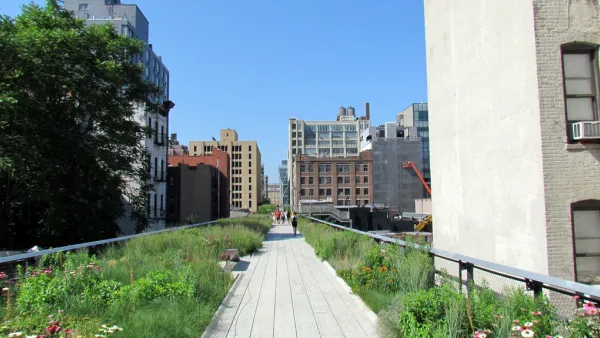Transforming suburban sprawl is a massive undertaking, but these small steps can help communities understand their needs and assets and develop clear, actionable goals for the future.

Pedestrianizing the suburbs might seem like a monumental challenge, writes Robert Steutenville, but a new report from the Congress for New Urbanism (CNU) and the Michigan Municipal League outlines a list of small, incremental steps that communities can implement to move toward less auto-oriented, more walkable and mixed-use neighborhoods. "Reorienting suburban neighborhoods for pedestrians requires an incremental yet integrated approach, calibrated to local needs, prioritized according to public aspirations, and targeted to specific areas within the community."
The list includes "proven techniques" drawn from successful projects from across the United States, ranging from identifying existing assets and future goals to aligning codes and ordinances to reforming parking regulations. These interventions act at a hyper-local level to identify community needs, leverage existing resources, and change regulations to support and anticipate higher density and pedestrian-friendly infrastructure. Adjusting land use regulations and parking requirements can go a long way toward "offering an alternative vision for existing buildings" and "adapting from placeless sprawl to walkable urbanism" by easing the way for adaptive reuse and denser development. "The process of rescaling suburban communities can be long and difficult, but seeing the road ahead will help a municipality measure their success, manage development outcomes, and maintain a sense of place amidst change."
FULL STORY: Incremental steps toward pedestrian-friendly suburbs

Analysis: Cybertruck Fatality Rate Far Exceeds That of Ford Pinto
The Tesla Cybertruck was recalled seven times last year.

National Parks Layoffs Will Cause Communities to Lose Billions
Thousands of essential park workers were laid off this week, just before the busy spring break season.

Retro-silient?: America’s First “Eco-burb,” The Woodlands Turns 50
A master-planned community north of Houston offers lessons on green infrastructure and resilient design, but falls short of its founder’s lofty affordability and walkability goals.

Test News Post 1
This is a summary

Analysis: Cybertruck Fatality Rate Far Exceeds That of Ford Pinto
The Tesla Cybertruck was recalled seven times last year.

Test News Headline 46
Test for the image on the front page.
Urban Design for Planners 1: Software Tools
This six-course series explores essential urban design concepts using open source software and equips planners with the tools they need to participate fully in the urban design process.
Planning for Universal Design
Learn the tools for implementing Universal Design in planning regulations.
EMC Planning Group, Inc.
Planetizen
Planetizen
Mpact (formerly Rail~Volution)
Great Falls Development Authority, Inc.
HUDs Office of Policy Development and Research
NYU Wagner Graduate School of Public Service




























